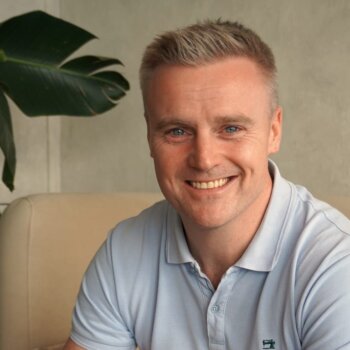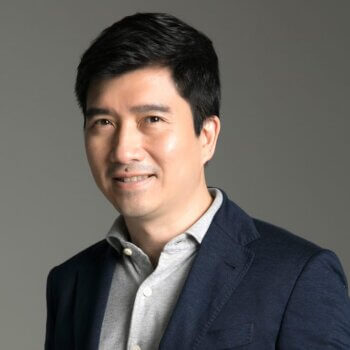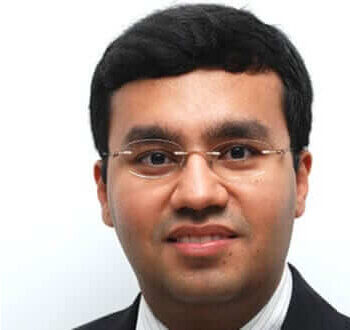(Women on Top in Tech is a series about Women Founders, CEOs, and Leaders in technology. It aims to amplify and bring to the fore diversity in leadership in technology.)
Here is my interview with Benedetta Arese Lucini, Co-Founder of Oval Money. Oval is the first solution that allows the digital natives of the on-demand economy, to finally get some sense of their finances, and become money wise. Oval’s vision is to create a simple financial solution for everyone, that speaks to the new generation of workers, with flexible income, variable expenses and limited access to financial products. At Oval, we are committed to financial inclusion, education, and fairness, and therefore we help tracking of everyday expenses and encourage savings based on personal life habits.
What makes you do what you do?
My reason to choose to study business and to then become an entrepreneur was simple. When I was a young child, I would often go to my father’s office to visit and he would let me sit at his desk, on a revolving office chair. I was in LOVE, and all my childhood dreams of being an astronaut or a marine biologist were swiped away that second. I wanted to be sitting in an office, on a revolving chair, playing with this “instrument” that had a funny keyboard as the letters were not alphabetically ordered. My father is an entrepreneur and at the time I had no idea of what it meant but I can probably start thinking that that day in his office, was more influential than I could have ever thought considering who I have become today.
How did you rise in the industry you are in?
I wanted a role that could develop the skills I knew I have from school. I had always been good in Math and loved the sciences and thought that finance could be a place where I could continue to use these skills and to learn the business, as a start to my dream of building my own. I then decided to go to business school to further expand my skills and to live in the US, the place I thought would give any entrepreneur the opportunities to rise. I moved to Silicon Valley after B-School and then Asia, always following the dream of using my skills to do something that mattered. When I moved back to Italy, to work as Country Manager in Italy I realized the tech and digital environment were not much developed and set out to advocate for the rise of this industry also here.
Why did you take on this role/start this startup especially since this is perhaps a stretch or challenge for you (or viewed as one since you are not the usual leadership demographics)?
I started Oval in February with 200€. I spent 30€ to open a company in the UK, and the rest for three flights return to London where my co-founders and I went to open a bank account. We realized that the so-called ‘fintech’ market was rapidly building new products that would slowly replace the dominance of banks and insurance companies. We wanted to do more; our mission is that of using technology to tailor financial education to every individual and personalize the steps that make a person, financially healthy, and thus included in the financial market, with access to transparent products. In the UK, a developed market and a financial center hub, an OECD study found that just about 50% of the interviewed pass the financial literacy threshold and that the youngest have a lower literacy that the over 40s.
We decided to tackle this huge problem, by building an app that can replace the branch financial advisor. Oval is built as an online community. We enable people to gain financial knowledge while connecting to each other with the help of a smartphone app. With Oval, setting money aside will become easier, and tracked simply, through analytics and personalization that empower and motivate to be money wise.
Do you have a mentor that you look up to in your industries or did you look for one or how did that work?
I always looked up to my father but growing up and through my diverse experiences, I always looked for mentors that could guide me. I tend to search for strong woman leaders, but also a man that are able to understand the potential I want to bring. My mentors have been diverse over the years and I have cherished them especially when making big decisions, big changes.
How did you make a match if you and how did you end up being mentored by him?
I have been lucky enough to meet people that inspired me over my career. Keeping in touch became my way to maintain the relationship, and digital channels helped a lot. The type of mentorship I received was specific during certain moments of my life and decision-making career, thus I tend to hold relationships with a number of mentors that help me for different reasons.
Now as a leader how do you spot, develop, keep, grow and support your talent?
I look for people that demonstrate their passion, talent and drive in what they do. I always support founders that have impressed me with their courage, and that have taught me something new. I believe that as a mentor, I am able to grow thanks to the people that I work with, and by growing as a person, I believe I help them grow as leaders. Learning leadership was a process that took time, it requires a lot of listening, and sometimes a little nudge, but helping people believe in themselves and in what they do is the key for me to support the talent.
Do you consciously or unconsciously support diversity and why?
I consciously support diversity and especially gender equality. I now from my past experience that industries such as finance and technology are extremely male dominated. I believe this creates a bias for a woman to believe it is their world also. For this reason, I make it a priority to find and mentor and also hire a woman as much as possible. I believe it starts at an early stage so I make sure to spend time mentoring young founders and university students, where I feel I can have the biggest impact. An Edelman Study shows that of the people interviewed, 75% will consult their community, before making a decision, thus building trust. If the community of woman can expand in these industries, and if they spend enough time being peers to girls thinking of their future, then I believe it will be easier to reach equality.
What is your take on what it takes to be a great leader in your industry and as a general rule of thumb?
Leaders generally are outside trends. They see things differently from the rest of the world. The truly believe in their missions and will never stop at anything to make them happen. Generally, leaders can be charismatic but also pretty reserved and it is not always easy to spot these. In general, I think the best strength of leaders is courage and perseverance; courage to be different from the crowd and perseverance to pursue their vision no matter the obstacles.
Advice for others?
From my father’s time, things have changed dramatically. University then was for a small few and immediately brought to a job at a large corporation. The possible paths one could choose were very clear and very few, and year over a year your career would progress linearly at the same company until retirement. Graduate woman were only 30% of the total graduates, and very few reached corporate leadership.
Today things have changed, many could be the first in your family to achieve a degree and masters and so many more women have decided to study and enter the finance world. With more access, though comes more competition and the labor market is not as “rosy” as it used to be. Entering the job market and navigating it probably feels like a bigger challenge, but I actually think this new industrial revolution will redefine jobs and skills.
Marc Andreessen, one of the leading venture capitalists in Silicon Valley, famously said; “The spread of computers and the internet will put jobs in two categories: people who tell computers what to do, and people who are told by computers what to do.”
At this point, my advice is to choose between three roads. Ignore the changes that are happening and let them pass by; select to hinder innovation and fight it but eventually even if its effects are delayed it will prevail. Or chose to embrace it, and transform careers thanks to the disruption happening, becoming at the frontrunner of this change.
The World Economic Forum Future of Jobs Report estimates that 65% of children entering primary schools today will ultimately work in new job types and functions that currently don’t yet exist. What does this mean?
Even with the best of education, people’s time spent learning after university will continue to increase. They great thing is that the skills that will be valued the most over the next 5–10 years are Complex Problem Solving and Creativity, something that entrepreneurs are good at! What I hope is that these abilities will help new generations of leaders find their roles and truly take on the world’s problems and go find solutions in a way that gives back to communities or society as a whole.
To learn more about Oval Money, please see https://www.ovalmoney.com/.
I am a huge fan and cheerleader of Women Leaders — If you know of an AMAZING Woman Founder, CEO, Leader in Tech or you are one yourself — Write me here.
AMPLIFY Conscious Business Leadership with me.






























